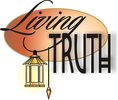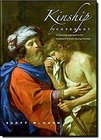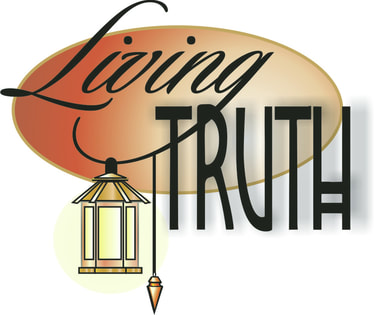|
Generally speaking, Hahn does an excellent job of defining the nuances in the term “covenant” as well as articulating how the idea of covenant attaches to the idea of kinship; especially in the use of the word “son”. He covers the covenant and kinship related elements in the Hebrew Bible, but goes on to voice quite a different view when it comes to the New Testament texts. He posits this view against the rather traditional interpretations of Paul in Galatians as well as with the view taken by the author of the book of Hebrews.
His canonical view shows a progression of covenants and kinship that ultimately helps the student see the progressive revelation of God and his plan for total redemption of the human race. Additionally, after reading this, I have a clearer idea of how both Jewish and Gentile believers fit together into the phrase Paul uses: “in Christ”. That having been the title of my own dissertation, it was of special interest to me. The reading and sometimes rereading of this text is slow because there is much detail to absorb, however, the insights brought out in a careful reading show a much more hopeful view of Paul (within his Second Temple Judean context) as well as a view of Hebrews which I believe is the capstone of his covenantal/kinship theme. Hahn uses the Hebrew Biblical texts to explain God’s interaction with Adam, then Noah, then Abraham, Moses and David. He shows a positive progression of God working in His world. I would recommend Kinship by Covenant to all Biblical Studies and Theology students as it will readjust some of your thinking away from traditional interpretations. The traditional interpretations often sidetrack the believer with a false narrative that encourages skewed opinions as to what covenants are and how they relate to the kinship of all Christ followers. I encourage people to either buy it or get it through an inter-library loan like I did. It is well worth the effort.
0 Comments
Dr Faydra Shapiro, is an award winning author. She has a Ph.D in religious studies and is an Orthodox Jew. Her lifelong interest in Christianity played a part in her education and after immigrating to Israel with her family in 2008, Faydra was eager to bring her academic expertise, unique experience, warmth and charismatic teaching together to have an impact on the ground, for Israel. And thus the Galilee Center for Studies in Jewish-Christian Relations at Yezreel Valley College was born. . Her insights into the challenges and possibilities within Jewish and Christian engagement are well researched and hopeful.
Her book, Christian Zionism: Navigating the Jewish-Christian Border illustrates that optimism. This book, as its title declares, explores Christian Zionism (Christians who support Israel), the borders between that separate them from contemporary views of Judaism that are Zionists as well. Zionism, as an idea has been controversial from the mid twentieth century and perhaps before, however, the idea of a Christian Zionist is often seen as an oxymoron, or worse than that, a political and religious dogfight between Christians and Jews. However, Dr. Shapiro’s aim is to “offer a fuller understanding with an additional lens of some of the broader issues and implications of a Christian Zionism (p.4) In my opinion she achieves this goal and more. Dr. Shapiro sensitively explores the waters of a Christianity whose members are aware of their connection to Judaism and who want to more authentically follow the Jesus they serve. While some may have other motives, the majority of those seeking to ‘bless Israel’ do so with a heart for the God of Israel who, in their eyes, commands them to do so. I believe that this book achieves its aim. It is a good contribution to the field of Judeo-Christian relations in a post Holocaust world because it goes beyond the attempts of Catholic and liberal Protestant attempts to ‘dialogue’ and touches on somewhat gritty topics that are verboten in those venues. Dr. Shapiro’s ability to articulate a clear vision of the various ‘sects’ of Christian Zionism is refreshing and very welcome. As a believer who lives in the No-Man’s zone and a professor at an Evangelical Divinity School, I applaud her desire to ‘flesh’ out not only the differences but also the common ground. I found this book delightful to read and found myself cheering for the insights and what seemed to be a mutual desired outcome; a coming together of Christians and Jews to nurture the growth of God’s people and His Land. The author’s optimistic attitude toward both Christians and Jews was a delight. I would recommend this book to all of my students and colleagues at the Divinity School and to anyone interested in the borders or common ground between Jews and Christians. It is a quick read, because it is well written and the reader will come away with a positive view of both groups and a hopeful attitude toward change. I occasionally visit Quora.com to find out what kind of questions people are asking about God, the Bible and Religion. One of the questions I answered seemed to have some traffic. I thought it might be something my readers would like to see. Here is the question: “My Bible teacher said that God accelerated the formation of the Earth to make it look like 4.5 billion years old. How can I refute him?” My thinking in answering the question was that while you want to show respect for the teacher, you might also want to challenge his thinking. Critical thinking skills are so lacking in this generation. We need to use those skills as much as possible or we will end up with a society that is astonishingly portrayed in the Movie “Idiocrasy”. This is how I answered the question. “Ask him the three Socratic Questions that usually get to the root of the idea. First question, “What do you mean by that?” He will have to be specific. Second Question: “How did you come to that conclusion”? It will tell you WHERE he got his information, for example, I had a vision and God told me directly (smile). Then you know what you are dealing with. Third Question: “Have you ever considered……”? This is where you insert the idea that this is just a hypothesis with NO evidence. You want him to have evidence to back up his hypothesis. If he is just guessing, as he would have to be, then you can just shrug it off. If you want to be more graceful, you can use the word theory instead of the word hypothesis to give the teacher the benefit of the doubt that he may have had something behind his assumption. Christians are supposed to be graceful in speech.” The answer got quite a few views and upvotes. Two persons kindly suggested that I say “hypothesis” instead of theory. Apparently my nuance was not caught. I amended the answer to include ‘hypothesis’ to be accurate, however, I explained the nuance below the amendment. Grace should be the hallmark of a Christian, not just ‘being right’. Relationships are what God is after, not a bunch of Smarty Pants! A Review of the Jewish Gospels by Daniel Boyarin
The Jewish Gospels by Daniel Boyarin is an excellent explanation of the background of Jesus and the New Testament writers that many pastors and other ministers are never taught, and this omission subsequently leads them into a path where the bible is misapplied, primarily due to eisegesis. The loss of the Jewish backgrounds of Jesus, his Apostles and all of the New Testament writers in Christian history over the last two millennia has resulted in a group of people claiming belief in the Jesus of the Bible, yet not knowing very much about Him. First Century cultural studies over the last 40 years have resulted in a new paradigm for reading and interpreting the New Testament. Since Vatican II in 1965 a new dialogue between Christians and Jews has emerged. It is within this dialogue, as well as expanded archaeological finds and theological scholarship led by both Christians and Jews who are talking to one another, that the near overthrow has emerged of old and anti-Semitic views of the Jewish people and their role as God’s chosen people. Christians must know this and apply the paradigm of a Jewish New Testament to their existing ministry education. Daniel Boyarin, Hermann P. and Sophia Taubman Professor of Talmudic Culture, writes to the well-read person. He doesn’t address scholars in particular but the material he covers is certainly fodder for new research. His views, albeit not those of a Christian, have much to offer in this book. Why? Because he is a historian of religion, and regardless of your religious views his work should be recognized for its historical value and then applied to one’s religious practice where relevant, and should be used as historical backgrounds when trying to interpret biblical texts. Some of the topics that Boyarin addressed as uniquely Hebraic are concepts such as ‘the Son of Man’ and the ‘suffering Servant’, both ideas, he shows, which are not uniquely Christian. He also helps to parse out the borderlines of the Judaisms of the Second-Temple period that reveal our current idea of Judaism as a monolithic religious system, did not exist during Jesus’ time; nor did Christianity. There were, Boyarin posits, Judaisms – several communities holding ideas and practices that were diverse, both ideologically and geographically. Christians, or really Messianics, were another sect of those who followed the God of Israel. John Miles’ Introduction helps to set the stage for the entire book. He discusses the current understanding of the separation of Jews and Christians as two separate religious systems, which is not as clear-cut as once thought. He shows the muddy waters from which both Judaism and Christianity emerged, primarily in trying to self-identify against the other, rather than establishment of a core identity based on its own commonly held beliefs and those that differed from each other. This book is for anyone interested in the New Testament context, and those who are looking to find a deeper, more meaningful relationship with God through the agency of Jesus the Messiah of Israel. The historical context of the Bible, so long ignored by theologians, develops the richness of the text not found in any other way. |
Cheryl Durham, Ph.D.Cheryl is the Executive Director at Living Truth. She is also currently Dean of Students and Professor of New Testament Culture and History at Master's International University of Divinity. She holds a Bachelor and Master's Degree in Biblical Counseling, a Doctor of Biblical Studies in Worldview and a Ph.D. in New Testament History and Culture. Archives
March 2020
Categories |


 RSS Feed
RSS Feed
